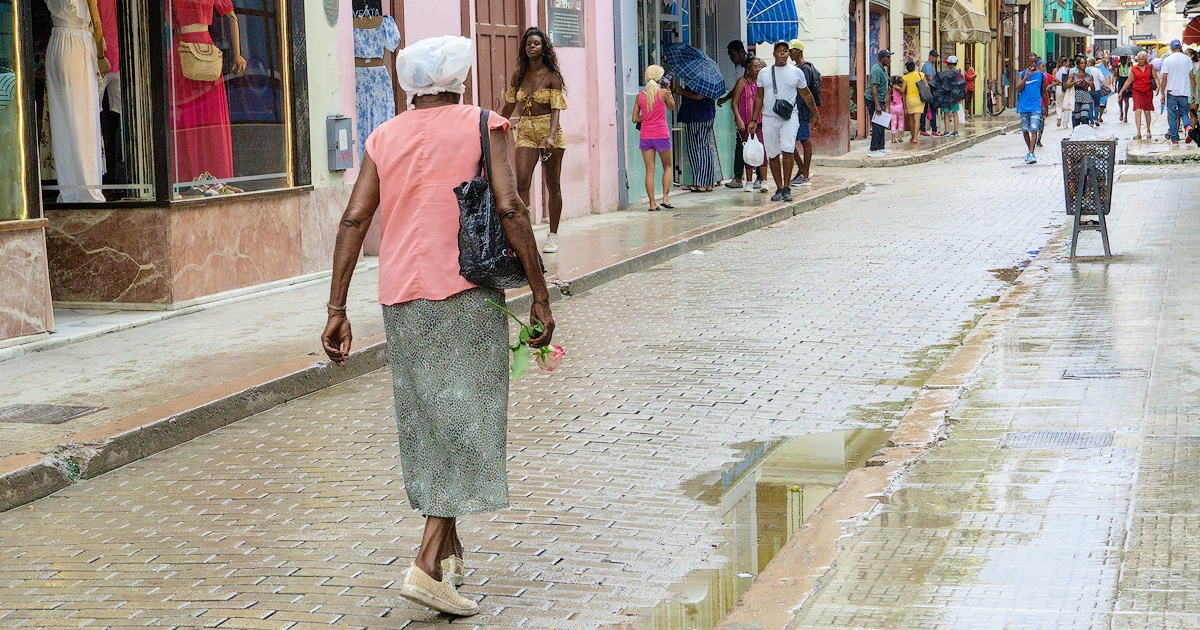
The Cuban population dropped by 18% between 2022 and 2023, reaching 8.62 million people, according to an independent demographic study ready for publication accessed by the Efe news agency.
The study, conducted by Cuban economist and demographer Juan Carlos Albizu-Campos, seeks to quantify the consequences of the significant exodus that the country has been experiencing since 2021 and to fill the resulting void due to the lack of official statistics regarding demographic fluctuations.
The calculation is based on the figures of Cubans who have arrived in the United States between October 2021 and April 2024, totaling 738,680 people, according to official information released by the U.S. authorities that combines visas, paroles, and irregular arrivals.
The aforementioned source revealed that "from there, the total number of migrants is extrapolated, taking into account the percentage of Cubans who head to the U.S. in relation to the total number of people leaving the country for any destination, which the author estimates at 33% for 2022 and 2023 based on historical trends."
This would result in a total number of migrants for the period 2022-2023 of 1.79 million people, an unprecedented figure in Cuban history.
According to various accounts, it is estimated that "in the major waves prior to the triumph of the revolution (1959), including the initial wave, the so-called flights of freedom, the Mariel exodus, and the rafters crisis, among others," a total of about 620,000 people left the country. This number is much lower than the 1.79 million Cubans who left the country in 2022-2023 for different countries, as revealed by the study cited by Efe.
If this figure is added to the so-called "negative balance of vegetative growth", since in both 2022 and 2023 there were many more deaths than births in Cuba, the population figure reached by the author is 8.62 million people.
It is worth clarifying that the initial number of inhabitants taken by Albizu-Campos is not the 11.11 million reported by the National Office of Statistics and Information (ONEI) as the population in Cuba as of December 31, 2021.
The author considers that figure to be "fictitious" and corrects it by using the electoral rolls of 2013 and 2023 as a reference.
In your opinion, the starting value should be 10.48 million people.
Regarding the recent migratory phenomenon, the official data from Cuba does not provide clarity, among other reasons because the authorities on the island only recognize a citizen as an emigrant once 24 months have passed since their departure from the country.
In addition, the crisis has led to the postponement of the population census that was scheduled for 2022.
Cuba has gone twelve years without conducting a population census, and the Cuban Government postponed the population census until 2025, arguing that the current economic situation does not allow for the task to be carried out.
At the beginning of June, the deputy chief of the National Office of Statistics and Information, Juan Carlos Alfonso, acknowledged to the Efe agency the negative impact of the economic crisis on his department.
"We are working to carry out the pre-registration of the census this year in 2024 and evaluate the real possibility of conducting it in 2025, depending on the country's availabilities," Alfonso stated.
The delay of this macro survey affects the availability of data necessary for the development of public policies and other government accounts. However, the official took the opportunity to blame the economic embargo imposed by the United States for the delay.
He added to the list of issues for conducting the census the effects of the pandemic in the country, the sanctions suffered under the mandate of Donald Trump, and the distortions in the Cuban economy since 2020.
The official also confirmed the deterioration of well-being indicators on the island, positioning it at an intermediate level in Latin America.
He also explained that the ONEI prepares statistics that are not published for political reasons, such as migration estimates and indicators of inequality.
Juan Carlos Alfonso acknowledged the increase in vulnerability and inequality in the population, as well as the deterioration of the Multidimensional Poverty Index (MPI) designed by the UN.
What do you think?
COMMENTFiled under: